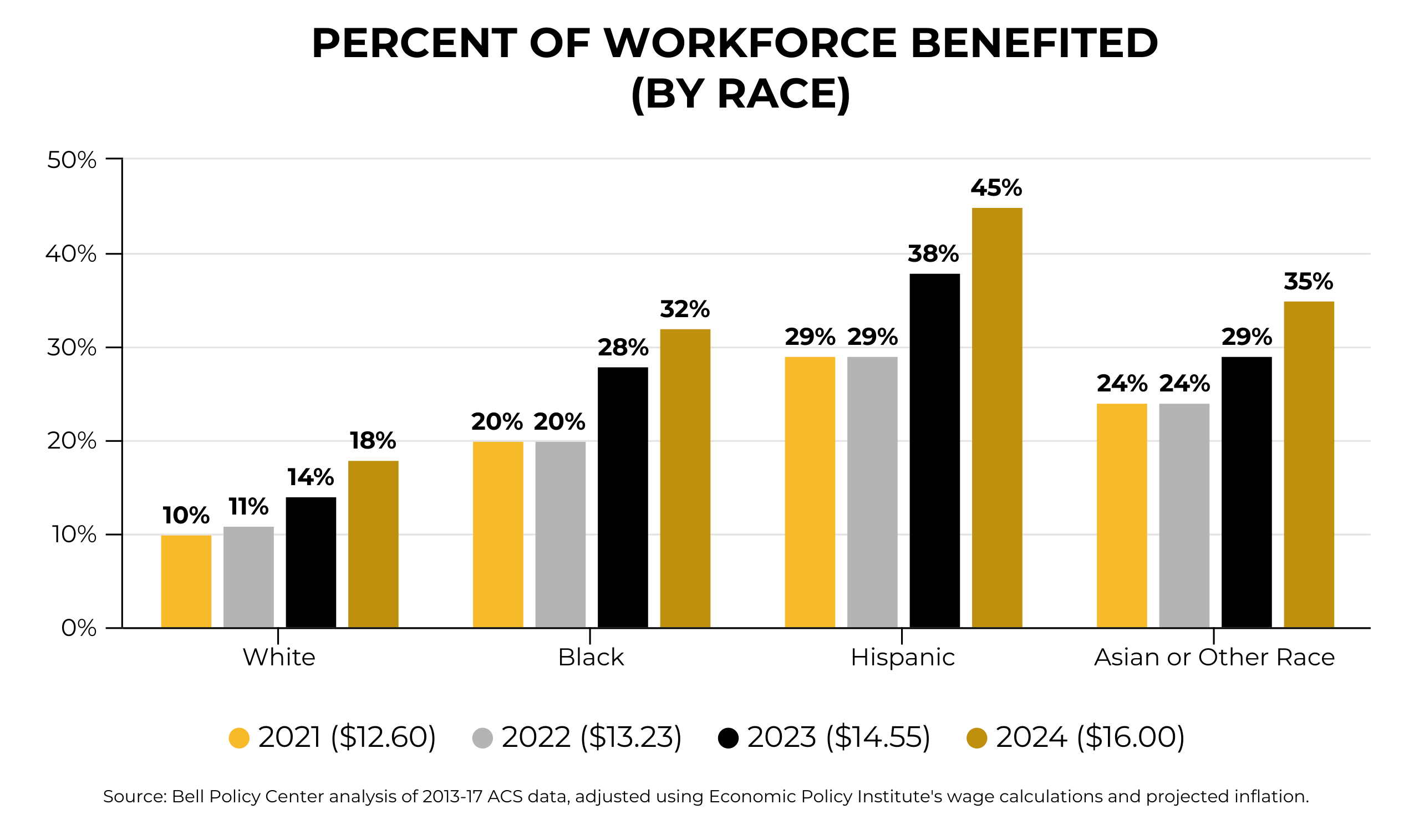Aurora Workers Benefited by Minimum Wage Increase
In a local and state economic environment where wages have failed to keep up with the true costs of living, and in many cases even simple inflation, raising the minimum wage has been a successful way to directly increase the economic circumstances of workers and communities.

Over the past decade, the real wages (i.e. wages adjusted for inflation) have not grown for majority of workers in the Aurora-Denver metro area. In fact, real wages have actually declined for most workers in many years. There is one notable exception: workers benefiting from Colorado’s increase to the state minimum wage. But even these positive wage gains from the statewide increase have had only limited value as the increases in housing costs, particularly rent, have far outpaced wage gains.
Rigorous economic analyses of local minimum wage laws show they boost earnings without having significant negative effects on employment. Because low-wage workers spend a greater share of their income back directly back into the local economy, an increase in the minimum wage can boost consumer demand, especially in a period of limited consumer demand, like the current COVID-19 period.
For Aurora, we estimate the current minimum wage proposal will:
- Benefit 30,000 workers in 2021 and over 68,000 by 2027
- Disproportionately benefit women and Black, Hispanic, and other workers of color
- Have a greater impact on workers aged 16 to 39, the vast majority of whom are over 18
- Boost pay primarily for full-time workers
You can read our full brief and analysis below (refresh your browser if you don’t see it) or click here to download a copy of the brief.
